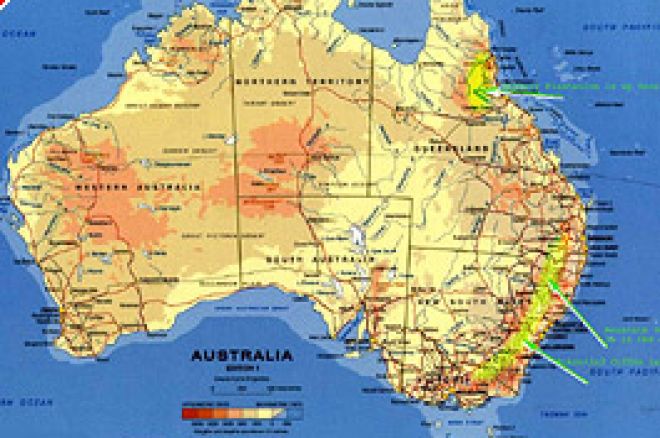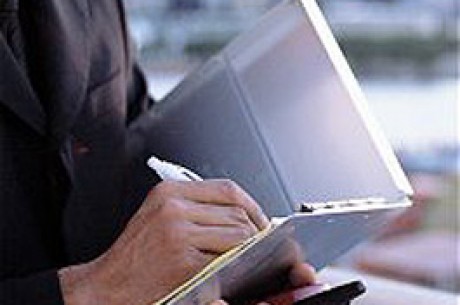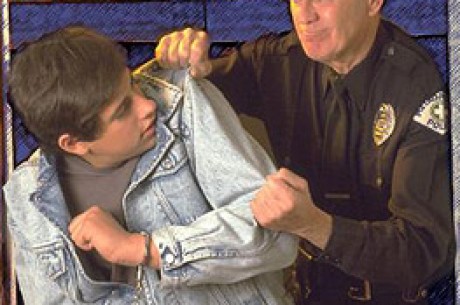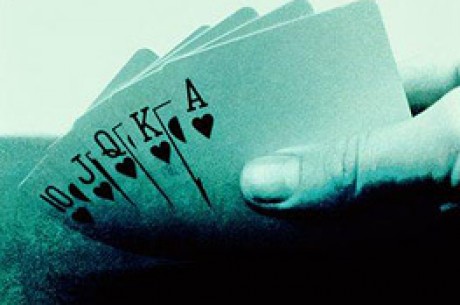Poker Machines Divide Australia

Australia is known for its kangaroos, koalas, and its citizens who will scream "Aussie Aussie Aussie, OI OI OI" at the drop of an Akubra (famous Australian type of hat). This nation of lush rainforests, beautiful barrier reefs, and deadly desert is making changes that will directly affect that country's gambling habits.
Sparked by a report from an independent gambling authority, officials in the state of South Australia have made a major move to combat the "one-armed bandits" and exploding gambling craze.
The cut in Poki machines, otherwise known as slot or poker machines in the U.S., is being hailed as a world's first. Led by Premier Mike Rann, South Australia is making a move that eventually will shut down 3,000 Poki machines used throughout the state by hotels, pubs, and clubs.
In a statement, Rann is quoted as saying, "No one has had the guts to do this before--no other state and, as far as we aware, no other country has rolled back a number of poker machines after they have been introduced."
The cutback in machines has received a luke-warm welcome. More than 300 hotels throughout SA will eliminate approximately 2,195 machines, with the rest coming from pubs or clubs.
The new law should have very little impact on the amount of money the state makes on the machines. Despite the cutback, the SA government's poker revenue is projected to rise this year from $297.9 million (AUD) to $307.4 million (AUD).
The law forces large venues such as hotels to reduce the number of machines from 40 to 32. The government will however make additional money by re-selling the full number of machines (40) back to larger venues, a subtle provision in the law that makes up for losses in machines.
Some pubs and sporting clubs are already working with the authorities, while other groups such as the Australian Hotels Association have opposed the cut. The AHA believes that government-enforced laws should have cuts across the board, affecting the casinos and sports clubs as well.
Twenty-two of venues voluntarily complied by offering the machines for sale outside the state, getting $50,000 (AUD), or roughly $39,000 (U.S.) per machine.
Other states in Australia are also finding potential problems with these electronic money making machines, but because of the poker machines financial impact on the government's budget, little is being done.
In Queensland, poker machines will provide and estimated $592 million (AUD) in revenue in 2005. Expectations suggest that by next year, government revenues from the machines will jump another $67 million (AUD), totaling a whopping $600 million (AUD). The government takes 17-36 cents per machine at clubs and 36 cents from machines placed in hotels. According to the ANU Centere for Gambling Research in Canberra, gambling taxes account for 12 percent of state revenues.
Unfortunately, the poorer residents of Queensland are the people who use the poker machines the most and there is are more machines located in poorer areas of Queensland than in wealthier areas.
For example, the biggest poker machine gamblers in Queensland come from a town called Beenleigh, located on Brisbane's southern coast. The town has a population of 8,000 and an 11 percent unemployment rate, yet averages of one poker machine for every 35 people. The Australian Bureau of Statistics currently lists Beenleigh as having one of the lowest socio-economic rates possible, with a score of 1 out of 10.
Government officials however, are quick to point out that Queensland has the third-lowest gambling expenditure per capita in Australia. The state of New South Wales tops this dubious list with an estimated $882 million (AUD) spent on the machines, almost doubling Queensland's total of $455 million (AUD).
The focus on poker machines in Australia comes at an interesting time in the gambling world. Laws vary in most countries regarding poker machines, with the U.S. declaring them illegal if not run and managed by proper licensed authorities. In other words, you can go to famous gambling cities such Atlantic City or Las Vegas and play the slots, but if you see a poker machine that pays out money in a local bar or drinking club, there is a good chance it is illegal.
Only time will tell whether smaller U.S. cities and the U.S. as a whole, will encounter problems similar to those happening in Australia. It would however, be naive of U.S. government officials to ignore what is happening in other parts of the world. U.S. legislators and cities should try to remember that money isn't everything, especially when it comes at the cost of its people.
Ed Note: Why play on machines when you can play in your living room at Pokerchamps.








